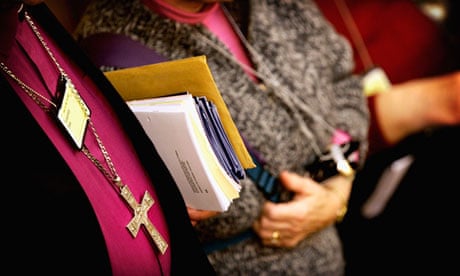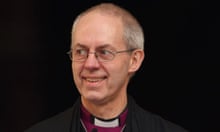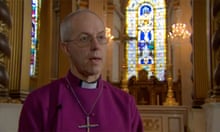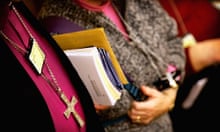The house of bishops of the Church of England, which makes up a third of the General Synod, has decided to allow senior female clergy to attend and speak at its meetings until women are legally permitted to become bishops.
The church's failure to vote in favour of the introduction of female bishops last November provoked fierce criticism in parliament and led one member of the synod to brand it a "train crash of epic proportions" for the C of E.
In a bid to soothe the anger the issue has generated, the house of bishops established a 10-strong working group made up of members of all three houses – laity, bishops and clergy – which has held a number of meetings on the matter.
On Thursday, the house of bishops outlined plans that would entitle eight senior female clergy to participate in its meetings and those of its standing committee, but stopped short of allowing them voting rights.
It also praised the "constructive manner in which everyone had joined together in the search for a way forward".
In a statement that provided a minor lift to the spirits of those campaigning for female bishops, the house said: "It decided that until such time as there are six female members of the house, following the admission of women to the episcopate, a number of senior women clergy should be given the right to attend and speak at meetings of the house as participant observers. The intention is that eight members would be elected regionally from within bishops' senior staff teams (that include deans, archdeacons and others)."
Christina Rees, a member of the archbishops' council and a prominent campaigner for female bishops, described the statement as "very encouraging".
"There is a strong indication of bringing forward new proposals and it sounds like there's a very strong intention that this process is not going to take a long time," she said. The announcement of the inclusion of female clergy in the house of bishops' meetings, Rees added, showed that it had recognised that "soon their number will contain women".
She also said that the house's decision not to extend voting rights to the eight women was "fair enough", adding: "This is a big step forward for the house of bishops because it's overturning hundreds of years of tradition of having a male-only house. It is a change of culture and it will feel different. It's been called a boys' club before, well suddenly it changes, and I think it's only fair to say it will take a certain amount of adjustment and transition, and having these eight senior ordained women there will help with that."
The working group is due to meet again next month, and new proposals on female bishops will be put to the General Synod in July.




